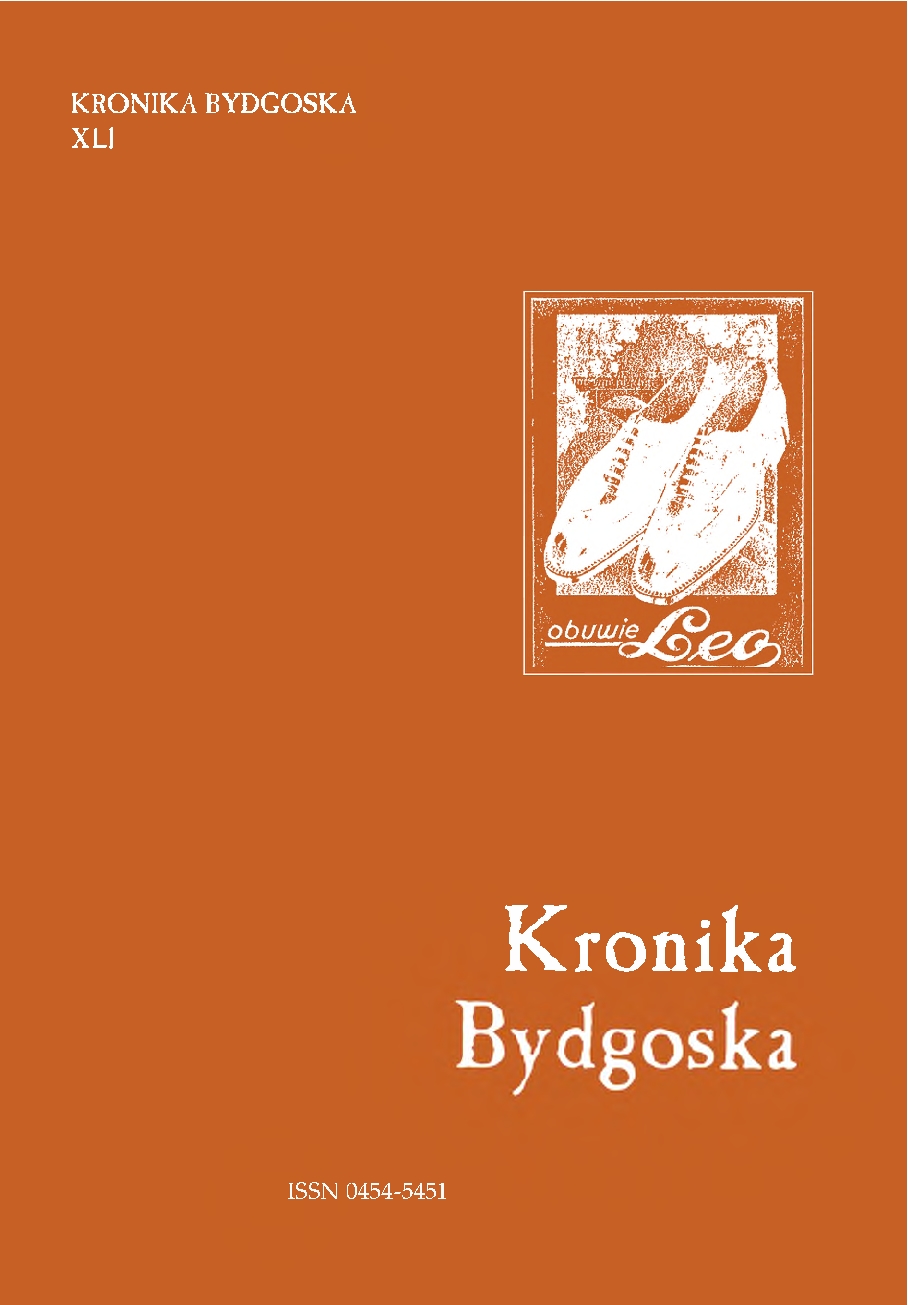Weynerowscy - od butów i dobrych uczynków
DOI:
https://doi.org/10.34767/KB.2020.41.09Słowa kluczowe:
Bydgoszcz, Fabryka Obuwia „Weynerowski i Syn”, Fabryka Obuwia LEO, Myślęcinek, Warszawa, Brześć nad Bugiem, Schronisko dla Ociemniałych, Czytelnia dla Kobiet, „Dziennik Bydgoski”, „Gazeta Bydgoska”, Antoni Weynerowski, Leokadia Weynerowska, Leon Weynerowski, Henryk Weynerowski, Witold Weynerowski, Wiktor Weynerowski, Weynerowscy, Jan Kentzer, Bronisław Kentzer, Tadeusz KentzerAbstrakt
Hundreds of Bydgoszcz residents for several decades had jobs thanks to the Weynerowski family. In addition, thousands of Poles and foreigners wore shoes made in their factory. Charitable activity was an important part of their everyday life. The history of the company began in 1876. In that time, Wiktor Weynerowski founded a small shoemaker’s workshop in Bydgoszcz. Antoni, the son of Weynerowski, took over the company in 1891. Over the time, he transformed his small workshop into a factory, which was becoming a force to be reckoned with on the market. Since 1910, it operated in a newly constructed big production facility between Kościuszki and Chocimska Streets. It featured technologically advanced equipment. In 1939, the Weynerowski family had something to be proud of. It also included the “LEO” Footwear Factory in Bydgoszcz, known in the country and abroad. Its flagship shoe stores were located in Poznań, Gniezno, Krotoszyn, Łódź, Zbaszyń, Toruń, Cracow, Warsaw, Lvov, and even Gdańsk. In addition, export had been growing from year to year, as well as relations with businesses abroad, including the USA, leading to ambitious plans to build yet another factory in the Cracow area. When the company started generating profits, the Weynerowski family started to donate part of its earnings for charity purposes - for the poor, orphans, and disabled soldiers. It particularly looked after the Hostel for the Blind. It also donated shoes made in its factory. The family participated in all charitable campaigns organized in the city, not only for the benefit of Bydgoszcz residents. It supported various national initiatives, including the fundraising for restoration of the Wawel Castle. The Weynerowskis also looked after their workers. They were not bragging about support they offered for the poor. They counted neither marks nor zlotys, which they gave to charity. However, according to the amounts that had been systematically reported by Bydgoszcz newspapers, these sums had to be impressive. This great act of charity, which was started by Leokadia and Antoni Weynerowski in the 20th century, was later continued by their sons, Henryk and Witold. This great charity chain was stopped by the outbreak of the war in September 1939. The factory was taken over by the Germans. After the liberation in 1945, the company was nationalized. The former owners departed from Poland to the USA and Canada.
Bibliografia
Błażejewski S., Weynerowski Antoni Karol Henryk, [w:] Bydgoski słownik biograficzny, t. 7, 2006, s. 118.
Drygałowa W., Opowieści bydgoskie, Poznań 1970, s. 85, 100, 114, 122.
Chmielewska G., Maria Palędzka. Szanowana dama i dobrodziejka z Łącznicy, „Gazeta Pomorska - Album Historyczny”, 30.05.2019 r.
Grysińska-Jarmuła K., Dzieje gospodarcze ziemiaństwa z powiatu bydgoskiego w latach 1920-1945, „Kronika Bydgoska”, t. 21, 2000, s. 93.

